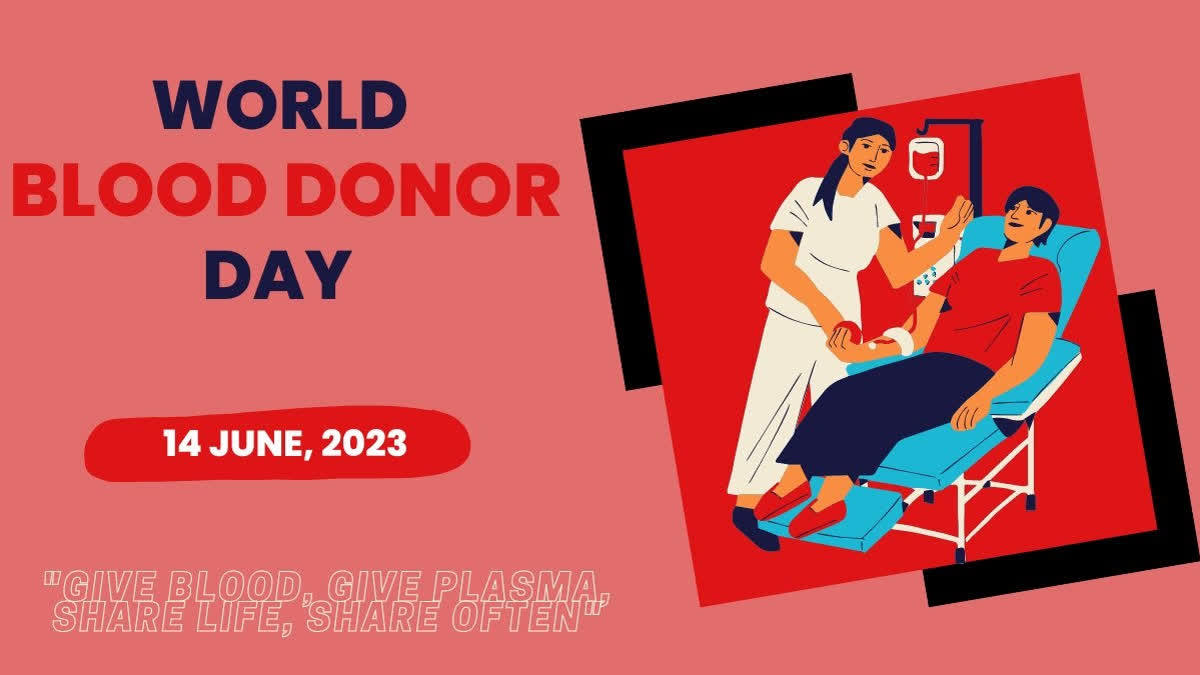Hyderabad: Several lives are saved through transfusions performed using safe blood and blood products on a daily basis. While the need for blood is universal, its access is not! According to WHO reports, Blood shortages are particularly acute in low and middle-income countries.
In order to support and provide an opportunity for health authorities to provide adequate resources to increase the collection of blood from voluntary, unpaid blood donors, as well as to manage access to blood and transfusion, World Blood Donor Day is observed on June 14 every year, across the globe. The day aims to shed light on the critical contribution of voluntary and unpaid blood donors to save lives and improve health systems.
World Blood Donor Day was officially established in the year 2005, at an annual event conducted by the World Health Assembly. Every year, a country hosts the event, and in the year 2023, Algeria will be hosting World Blood Donor Day through its National Blood Transfusion Service.
In the year 2023, World Blood Donor Day is being observed around the theme "Give Blood, Give Plasma, Share Life, Share Often" across the globe. This theme focuses on the patients who require life-long transfusion support and also highlights how important a person's donation of blood or plasma is for creating a safe and sustainable supply of blood and blood products.
WHO states that blood and blood products are essential resources for the effective management of women suffering from bleeding associated with pregnancy and childbirth, children suffering from severe anaemia, patients with blood and bone marrow disorders, inherited haemoglobin disorders, immune-deficiency conditions, trauma victims, emergency cases, disasters, accidents, etc. The objectives of the WHO's World Blood Donor Day in 2023 are:
1. Celebrating and thanking individual blood donors, and encouraging more people to donate;
2. Encouraging healthy people to donate blood regularly, as often as is safe and possible, to transform the quality of life for transfusion-dependent patients and help to build a secure blood supply in all countries in the world;
3. Highlighting the critical roles of voluntary non-remunerated regular blood and plasma donations in providing universal access to safe blood products for everyone; and
4. Generating national, regional and global support from governments and developing partners to invest in, strengthen and sustain national blood donation programmes.



